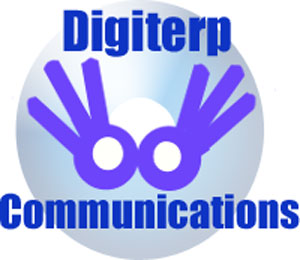Workshop Presentation
Workshop Resources
"Cartography for Interpreters" Resources
Discourse Mapping Resources
Resources for Discourse Mapping
Discourse mapping is a term used for both the process of analyzing texts in interpreter education and skill development and the features of an interpretation that use linguistic features to create a connected and cohesive product. These resources are related to both doing the analysis and being able to create more effective discourse mapping in your work.
Analyzing Discourse: An independent study packet for working with Life in Parallel
This is a packet that takes you through a step by step process for doing discourse analysis.
Navigating Discourse Genres: Canoeing in the BWCA
This video series features a Deaf woman and a hearing man talking about their experiences canoeing in the Boundary Waters Canoe Area Wilderness. There are 6 parallel talks in this topic in the following genres: narrative, procedural, explanatory, hortatory, and argumentative.
Depiction, Blending, and Constructed Action
Miako Rankin, from Gallaudet University, did a workshop on Depiction that provides a good framework on how space is used, how classifiers are incorporated into that, and how depiction of action and conversation is an important framework for helping to understanding the mapping of space and discourse.
Videos for Discourse Mapping
A Source Text for Discourse Mapping Practice
Source Text with Processing Time
Translations without Mapping
To the best of our ability
With Mapping
Slavery and American Revolution
Source Text
No Mapping
With Mapping
Echolocation
The original lecture
With Commentary on Fingerspelling & Discourse Mapping features
A High School Anatomy Lecture
Posted in: "Cartography for Interpreters" Resources, "TIPS-Light" Resources, Discourse Mapping, In Service to Literacy, Mentoring Resources, Moving toward Best Practice, Putting Theory into Practice, Sense of Place, Swiss Army Knife Tools
Workshop Description & Objectives
Description
Educational discourse is highly structured, with predictable and repeated patterns through all grades and types of classroom activities. Interpreters need to have strong mental maps of these discourse types and be able to express them clearly through use of space and prosodic features in ASL. This workshop will use a combination of discussion and interactive activities to develop the knowledge and practice the skills that address the following challenges:
- What are the patterns of language in use in the classroom?
- What are the various options for use of space in ASL and how can they most effectively convey classroom content?
- What is prosody and how can we represent English prosodic features in a visual form?
- What does Discourse Mapping mean in the EIPA system?
Objectives
Successful participants will be able to:
- To list at least 5 features of discourse maps;
- To compare and contrast texts (both ASL and English) with and without discourse mapping features;
- To practice the use of discourse mapping within a rehearsed interpretation or transliteration.
About the Presenters
Doug Bowen-Bailey is an interpreter, mentor, educator, and resource developer who lives in Duluth, MN. He has partnered with the CATIE Center at St. Catherine University to create numerous CDs, DVDS, and online modules related to interpreting in healthcare and educational interpreting. Along with Patty Gordon, he created the Teaching Interpreters in Public Schools (TIPS) process to support educational interpreters in raising the level of service in the classroom and their performance on the EIPA, so he is experienced with issues related to both healthcare and education. He currently serves as the webmaster for healthcareinterpreting.org and the Conference of Interpreter Trainers. Doug can be contacted at dbb@digiterp.com.
Patty Gordon has a B.A. in Linguistics from Metropolitan State University and a Master of Liberal Studies from the University of Minnesota as well as certificates from the University of Colorado’s Teaching ASL and Master Mentor programs. She is a community interpreter in private practice for over 24 years, an adjunct instructor in the ASL Interpreting Department at St. Catherine University in St. Paul, Minnesota and has developed an taught workshops focused on ASL linguistics, interpreting process strategies, mentoring and performing arts interpreting, among others. As a consultant, she provides interpreter evaluation, program development, ASL media translation, and curriculum development. As a mentor and mentor trainer she has worked and offered support to programs in Minnesota, Alabama, Louisiana, Iowa, South Dakota, Kansas and New Brunswick, Canada. Patty can be contacted at pattygordon@mac.com.

